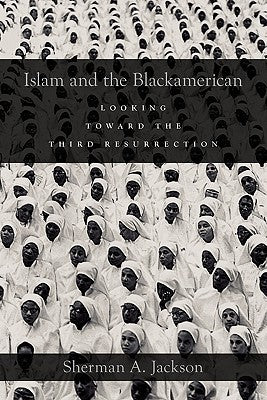-

A note on book covers: while we do our best to ensure the accuracy of cover images, ISBNs may at times be reused for different editions of the same title which may hence appear as a different cover.
Islam And The Blackamerican: Looking Toward The Third Resurrection
Islam And The Blackamerican: Looking Toward The Third Resurrection
Couldn't load pickup availability
Islam in Black America begins as part of a communal search for tools with which to combat racism and redefine American blackness. The 1965 repeal of the National Origins Quota System led to a massive influx of foreign Muslims, who soon greatly outnumbered the blacks whom they found here practicing an indigenous form of Islam. Immigrant Muslims would come to exercise a virtual monopoly over the definition of a properly constituted Islamic life in America. For these Muslims, the nemesis was not white supremacy, but "the West." In their eyes, the West was not a racial, but a religious and civilizational threat. American blacks soon learned that opposition to the West and opposition to white supremacy were not synonymous. Indeed, says Jackson, one cannot be anti-Western without also being anti-Blackamerican. Like the Black Christians of an earlier era struggling to find their voice in the context of Western Christianity, Black Muslims now began to strive to find their black, American voice in the context of the super-tradition of historical Islam. Jackson argues that Muslim tradition itself contains the resources to reconcile blackness, American-ness, and adherence to Islam. It is essential, he contends, to preserve within Islam the legitimate aspects of Black Religion, in order to avoid what Stephen Carter calls the domestication of religion, whereby religion is rendered incapable of resisting the state and the dominant culture. At the same time, Jackson says, it is essential for Black American Muslims to reject an exclusive focus on the public square and the secular goal of subverting white supremacy (and Arab/immigrant supremacy) and to develop a tradition of personal piety and spirituality attuned to distinctive Black American needs and idiosyncrasies.
Details of Book
A note on book covers: while we do our best to ensure the accuracy of cover images, ISBNs may at times be reused for different editions of the same title which may hence appear as a different cover.

-
One Line Summary
Explores Black American Islam's cultural and spiritual evolution.
-
Who is this book for?
If you're interested in understanding how Black Americans have shaped and been shaped by Islam, this book offers a compelling historical perspective. Sherman Jackson examines the unique development of Black Muslim identity within the broader American context, making it a thoughtful read for those curious about religion, race, and cultural activism.

